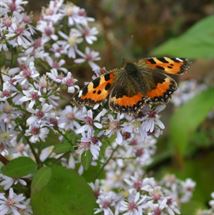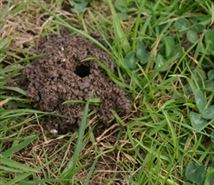
'Citizen Science': an opportunity for gardeners
-
We gardeners are in a unique position to add to scientific understanding of the natural world by observing and recording the wildlife on our doorsteps.
-
You can contribute to many recording schemes - some of them one-offs, some once every year, and some of them are on-going.
-
There is something for everyone. Don't think that your contribution is not important - completing surveys is one of the most important ways that you can help our wildlife.
-
Conservation decisions can only be taken on the basis of data about the distribution and current status of a species, and the more records that are received, the better that data is.
-
Charles Darwin himself was an amateur naturalist, who developed his ideas from regular observations and records of species that he saw in his garden in Kent.
Some recording schemes you can take part in at home:
CHECKED AND UPDATED AUGUST 2022
Most are suitable for newcomers to recording. For sources of ID help see Links
UK Pollinator Monitoring Scheme (POMS). Spend ten minutes counting pollinators to contribute to a Flower-Insect Timed Count (FIT Count), or adopt a 1km square and help carry out a systematic survey of insects and flowers.
The Buzz Club A UK-wide citizen science charity bringing together gardeners and volunteer scientists of all ages to answer important questions about garden wildlife.
Big Butterfly Count A simple, online survey of butterflies and day-flying moths (in Great Britain) aimed at people with no previous experience of recording. Only takes 15 minutes! Takes place 3 weeks during July and early August every year. You submit as many sets of results as you want.
If you are in Northern Ireland or the Republic of Ireland you can contribute to the Irish Butterfly Monitoring Scheme
Garden Butterfly Survey A simple online survey of butterflies in your garden (in the UK). Record the butterflies you see in your garden once a month. This will help to monitor garden butterfly populations and target conservation effort to help struggling species.
Moth Night An annual celebration of moths and moth recording, usually takes place over three days and nights
Bumblebee surveys In Great Britain the Bumblebee Conservation Trust runs Beewalk, where you monitor a permanent route (transect) in your neighbourhood.
If you are in Northern Ireland or the Republic of Ireland you can contribute to the All-Ireland Bumblebee Monitoring Scheme.
Bees, Wasps and Ants Recording Society (BWARS) – Does on-line data collection for some easy to identify solitary bees, and sightings of winter-active bumblebees. For these schemes click on 'MAPS and Records' on the top menu on the BWARS home page.
iRecord is a site for managing and submitting all your wildlife records.
Pan-species Listing A pan-species list is a list of all the animals, plants, fungi and protists you have seen. You can get involved by compiling a pan-species list for a site - it could be your garden.
Last updated August 2022. Copyright © Marc Carlton 2006 - 2022. Terms of use.


